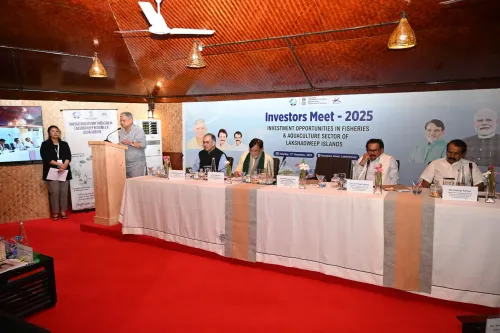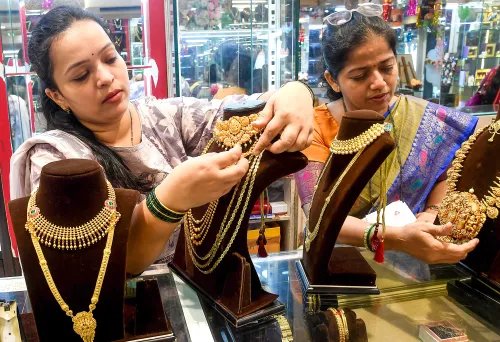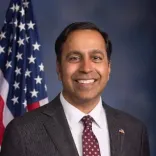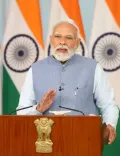India's Potential to Become a Premier Global Submarine Cable Network Hub
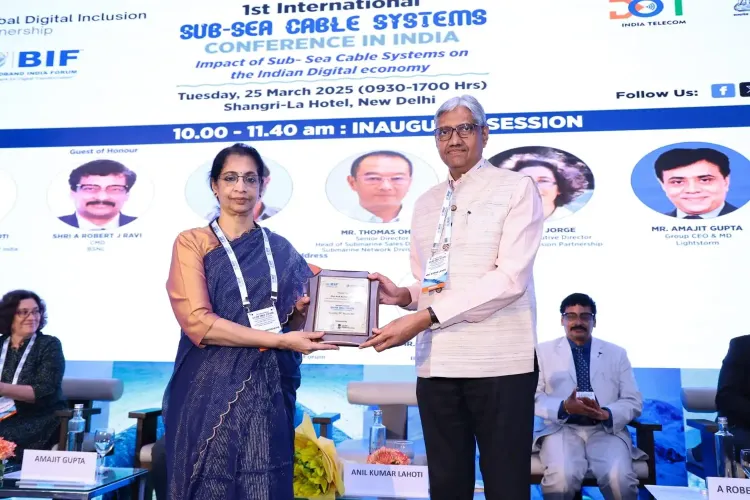
Synopsis
Key Takeaways
- India can be a global subsea connectivity hub.
- Subsea infrastructure needs a 4-5X expansion.
- Over 95% of global data traffic is carried by subsea cables.
- Geographical diversity in cable systems is essential.
- Major telecom players are enhancing connectivity.
New Delhi, March 25 (NationPress) India has the opportunity to establish itself as a global center for subsea connectivity, owing to its advantageous location and expanding digital infrastructure, stated Aruna Sundararajan, Chairperson of the Broadband India Forum (BIF), on Tuesday.
She highlighted the necessity to increase India’s subsea infrastructure by four to five times to accommodate the growing demand for data consumption.
"India possesses significant potential to rise as a leading global transit hub for subsea connectivity. To achieve this, it is crucial to expand our subsea infrastructure capacity by 4-5X, enhance resilience, and construct redundancy in our subsea cable systems, aligning with global trends,” Sundararajan remarked.
While addressing the ‘International Subsea Cable Systems Conference’ in the capital, she noted that prioritizing subsea cable networks is vital, particularly in light of evolving geopolitical circumstances.
During the event, Anil Kumar Lahoti, Chairman of the Telecom Regulatory Authority of India (TRAI), emphasized that subsea cables transmit over 95 percent of the global data traffic.
He pointed out that recent global disruptions in cable systems have highlighted the necessity to strengthen this network.
"To protect our strategic and commercial interests, the geographical diversity of subsea cables and enhancing Cable Landing Stations (CLS) are essential," he added.
BSNL CMD Robert Ravi reiterated the company's commitment to enhancing secure and cost-effective connectivity throughout India.
"We take pride in connecting India, from the ocean depths to the Himalayan heights, securely, affordably, and reliably," he affirmed.
India already plays a pivotal role in the global subsea cable framework, with approximately 17 international subsea cables linked to 14 landing stations in cities like Mumbai, Chennai, Cochin, Tuticorin, and Trivandrum.
Indian telecom leaders such as Tata Communications, Bharti Airtel, Global Cloud eXchange, and BSNL manage these critical infrastructures.
Recently, Bharti Airtel landed the SEA-ME-WE 6 submarine cable in Chennai, enhancing its international connectivity.
Global technology giant Meta has also introduced 'Project Waterworth,' a 50,000 km undersea cable project connecting India with the US, Brazil, and South Africa, further solidifying the country’s significance in global digital networks.



